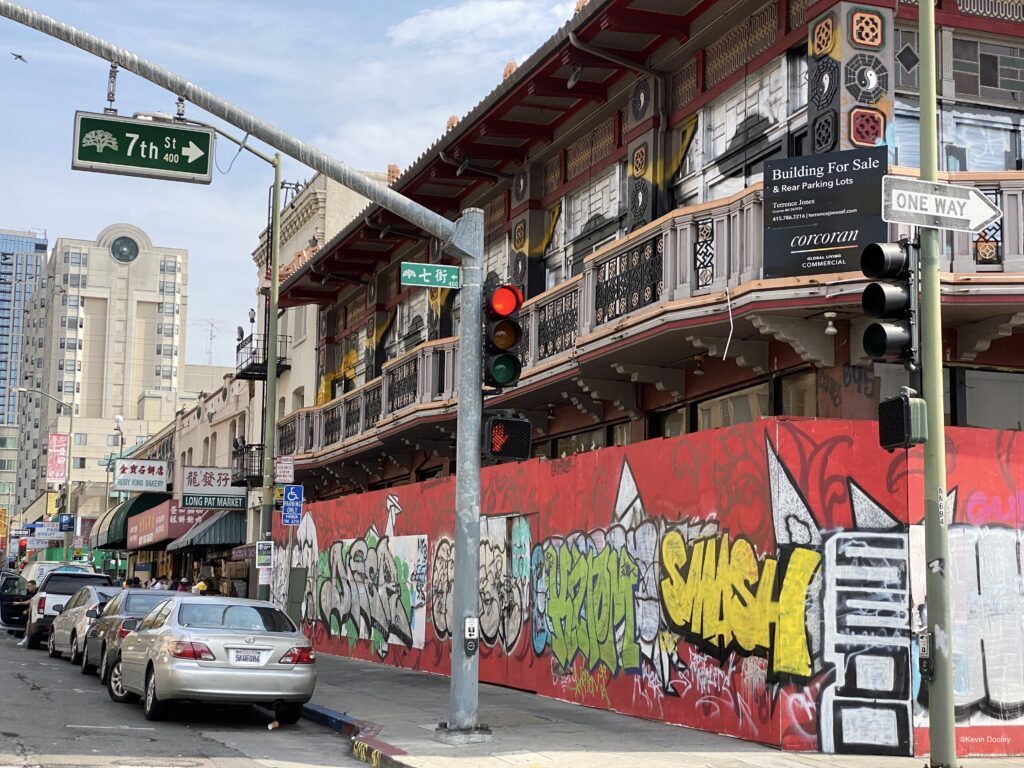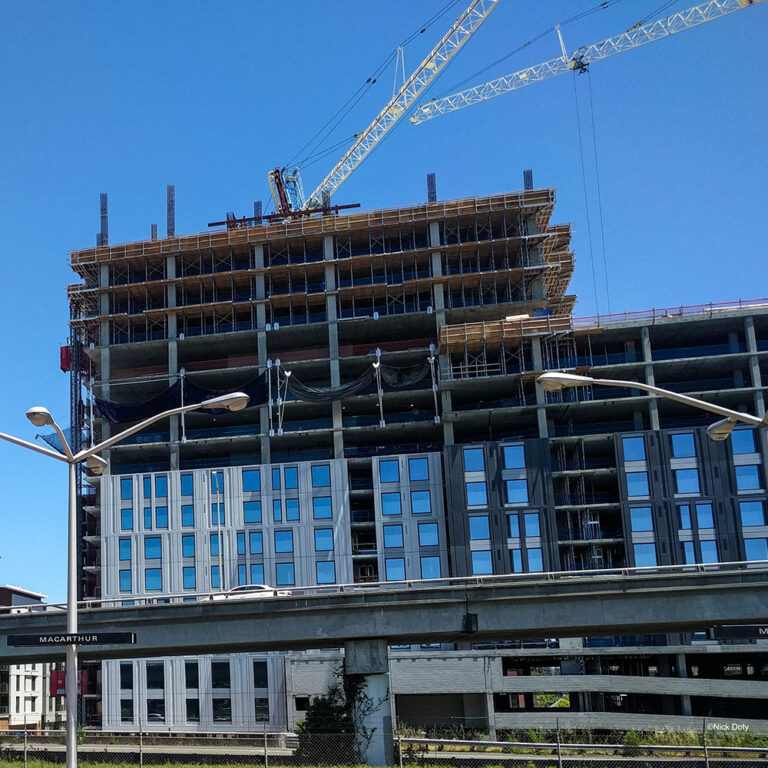Does Oakland show any hope of exiting its doom loop?
by Matthew Fleming | August 30, 2024
Even before FBI agents raided the home of Oakland Mayor Sheng Thao in late June, it was safe to wonder: What the heck is wrong with Oakland?
Defenders of the city point to its positive community spirit and its culture and are quick to pan critics as right-wingers, or “conniving Republicans” perpetuating “doom loop narratives.”
It’s true the city has a great spirit, with many beautiful areas. It spawned influential social-justice groups like the Black Panthers. Its recent sports teams revolutionized professional basketball and baseball. It has a vibrant music scene.
But for all its good qualities and the fact that many major cities are struggling in various ways, it still stands out as the city with such a clean sweep of problems.
The Past Few Years
The city has mounting budget issues. Its mayor, Thao, is facing recall independent of whatever is happening with the FBI. Those great sports teams have all left for other cities.
Its popular police chief was dumped in what appears to have been a trumped-up controversy, though its police department has struggled for years with allegations of misconduct. Reports suggest crime might be dropping, although a San Francisco Chronicle investigation found that the police department had been “publishing misleading crime data for years.”
Read Pacific Research Institute fellow Wayne Winegarden’s
“Free Cities Index.”
Watch this
Free Cities Center video about
San Francisco’s election.
Add in all the other problems that are less Oakland-specific – like a housing shortage, exorbitant cost of living, underperforming schools and homelessness – and you have a city in crisis.
The Mayor
To be clear, Thao has not been accused of any wrongdoing. The FBI raid of her house centered on an investigation into a politically-connected family in what some observers suggest could be a campaign-contribution laundering scheme. The investigation has spread to the police department, but observers say that could be more based on records than police wrongdoing.
There’s nothing solid yet, and everyone is innocent until proven guilty, but the FBI raiding the mayor’s house and police department under any circumstance is not a sign of a well-run city.
“Poor leadership, beginning with the mayor,” said Bill Whalen, Virginia Hobbs Carpenter Distinguished Policy Fellow in Journalism at Stanford University’s Hoover Institution, said. “A strong mayor can do wonderful things in terms of turning around a city — (former Mayor Rudy) Giuliani and New York, for example. Oakland, on the other hand, has had a series of bad mayors.”
“The last decent person to run the town was Jerry Brown – and that’s two decades ago,” Whalen added.


The Police Department
Thao’s troubles with voters began after she fired a popular police chief, LeRonne Armstrong, for allegedly mishandling police misconduct. An investigation cleared Armstrong of any wrongdoing, and he has since sued Thao for wrongful termination.
But if Armstrong was innocent, he had nearly a dozen predecessors over two decades who oversaw a department rife with corruption. It got so bad that from 2001 to 2011, the city paid $57 million to alleged victims of police abuse. Ironically, misconduct payouts plummeted under Armstrong.
Oakland has seen a decrease in violent crime this year, although it is still more dangerous than comparable cities. But even that good news is muddled by the fact that the Oakland Police Department had been releasing juked stats for years.
It’s a different story for non-violent crimes, however. Things got so bad with drug crime and car thefts that Gov. Gavin Newsom dispatched attorneys and California Highway Patrol officers to help out. This occurred as progressive Alameda County District Attorney Pamela Price, an Oakland native, faces a recall for being allegedly soft on crime.
What Defenders Say
Oakland’s defenders, of whom there are many, often write off criticism as nothing more than right-wing propaganda. “This is really about changing the political discourse in our community, shifting to the right, and making it safe for MAGA,” Price told Politico of her recall, “and that is something that is very dangerous.”
A columnist for the San Francisco Chronicle opined that “Good things happening in San Francisco and Oakland are challenging negative narratives about the cities.” Sadly, his column made note of how crime had been improving, only to have the rug pulled out from under him after his paper broke news of the misleading crime stats.
The columnist, Justin Phillips, hung most of his argument on local festivals and culture as evidence that Oakland isn’t as bad as people say it is, and fell back on claiming critics were nothing more than right-wingers.
“For a city that disgruntled local moderates and conniving national Republicans claim is more dangerous than ever, the festival was timely proof that the most insidious narratives about life in Oakland — such as Lake Merritt no longer being a place for family-friendly gatherings — are intentionally misleading,” Phillips wrote.
Sports Teams Flee
Much has been written about the failure of Oakland to keep the Golden State Warriors, the A’s and the Raiders in town. In the case of the A’s, the team would rather spend a few seasons playing in a minor league stadium in West Sacramento to avoid spending another year in Oakland.
While the disputes were certainly two-sided, with the sports teams having a large share of the blame, there is one common denominator in each of the disputes: the City of Oakland.
Was the city correct in not shelling out taxpayer dollars it didn’t have to keep its beloved teams? Maybe, but one has to wonder if a more competent city could have kept at least one of the teams.
It’s hard to see any quick fixes, which means Oakland has a long road to recovery. But with elections approaching, maybe that recovery has already started.
Matt Fleming is opinion columnist for the Southern California News Group and CEO of Sower Strategies, a digital marketing and public affairs firm.
